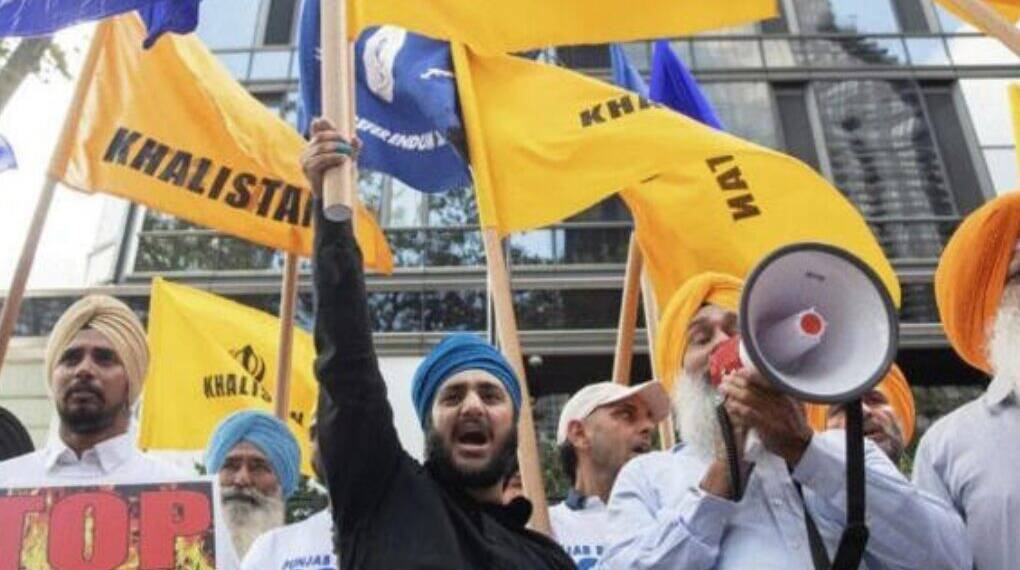As Canada gears up to host the G7 Summit in Kananaskis, Alberta, from June 15 to 17, the event is being overshadowed by escalating tensions driven by Khalistani extremism. Indian Prime Minister Narendra Modi’s attendance at the summit has sparked outrage among pro-Khalistan groups, who are planning to “ambush” and “kill” Modi’s political influence, according to Media Source. These groups, openly glorifying violence and separatism have reignited a diplomatic firestorm between India and Canada, with New Delhi demanding a crackdown on anti-India activities while Ottawa struggles to balance domestic pressures and international relations.
Khalistani Extremism Takes Center Stage
The Khalistan movement, advocating for a separate Sikh homeland in India, has taken an increasingly aggressive turn in Canada. In Vancouver, a vehicle displaying “Khalistan Zindabad” alongside Pakistan and Khalistan flags was spotted, signaling the movement’s provocative alignment with anti-India forces. At a rally at the Vancouver Art Gallery, Khalistani supporters paid tribute to “martyrs,” including the assassins of former Indian Prime Minister Indira Gandhi and two young girls, Bibi Satnam Kaur and Bibi Waheguru Kaur, used as suicide bombers against Indian army tanks.
These actions are part of a broader pattern. Groups like Sikhs for Justice have organized violent protests outside Hindu temples and so-called “referendums” for Khalistani separatism, actions that India has repeatedly condemned as destabilizing. The upcoming G7 Summit has become a flashpoint, with Khalistani activists vowing to disrupt Modi’s visit, citing his government’s alleged role in the 2023 killing of Hardeep Singh Nijjar, a pro-Khalistan extremist in British Columbia. India has dismissed these allegations as “absurd,” accusing Canada of sheltering terrorists.
Canada’s Troubling Track Record
Canada’s handling of Khalistani extremism has drawn sharp criticism from India. Under former Prime Minister Justin Trudeau, Ottawa’s reluctance to curb anti-India activities was seen as political pandering to secure Sikh votes. The 2023 Nijjar killing triggered a diplomatic crisis, with Canada expelling Indian diplomats and halting trade talks after Trudeau’s unproven claims of Indian involvement. India retaliated by suspending visa services and labeling Canada a safe haven for extremists.
The election of Prime Minister Mark Carney in April 2025 offered hope for a reset, with Modi expressing readiness to engage Canada “with renewed vigor.” However, Carney’s invitation to Modi has provoked backlash from Sikh advocacy groups, who demand the invitation be rescinded. The World Sikh Organization and other groups have cited the 1984-armed conflict in India, which killed hundreds, as justification for their anger, while ignoring the violent rhetoric of their own rallies. Canada’s failure to address these provocations, including the glorification of the 1985 Air India Kanishka bombing that killed 329 people, continues to strain bilateral ties.
A Diplomatic Test at the G7
The G7 Summit was meant to mark a new chapter in India-Canada relations, with India as Canada’s 10th largest trading partner and over 1.8 million Indo-Canadians contributing to society. However, the “law enforcement dialogue” planned between Modi and Carney on the summit’s sidelines will be dominated by the Khalistan issue. India is expected to press for action against groups inciting violence, while Canada may raise the Nijjar case, perpetuating mutual distrust.
As per media reports Khalistani threats have gone viral, with some users accusing Canada of enabling terrorism under the guise of free speech. Others note that the Trudeau government’s legacy of appeasement has emboldened extremists, a challenge Carney must now confront. Canadian lawmaker Dallas Brodie’s calls for a tougher stance offer some hope, but concrete action remains elusive.
Economic and Social Stakes
The Khalistani movement’s disruptions threaten more than diplomacy. With over 400,000 Indian students in Canadian institutions and potential for growth in education, technology, and energy, the economic stakes are high. Yet, Khalistani protests targeting Indo-Canadian communities and Hindu places of worship have sown fear and division, undermining Canada’s reputation as a multicultural haven.
India has warned that Canada’s permissiveness risks broader consequences, including strained trade and security cooperation. The international community is watching, with the G7 Summit serving as a litmus test for Canada’s ability to manage internal extremism while projecting global leadership.
A Call for Accountability
As Modi prepares to attend the G7, Canada faces a critical choice: confront Khalistani extremism or risk further alienating a key partner. The Vancouver rally, with its overt glorification of violence and anti-India sentiment, underscores the urgency of action. Canada’s history of inaction—from the Air India bombing to the Nijjar fallout—has emboldened extremists, threatening both national security and bilateral progress.
The G7 Summit offers a chance for Carney to demonstrate resolve, but the planned Khalistani protests signal that the road to reconciliation will be fraught. India’s demand for a crackdown is not just about curbing extremism; it’s about restoring trust in a relationship vital to both nations. As the world watches, Canada must decide whether it will prioritize unity and partnership or allow a vocal minority to dictate its global standing.








